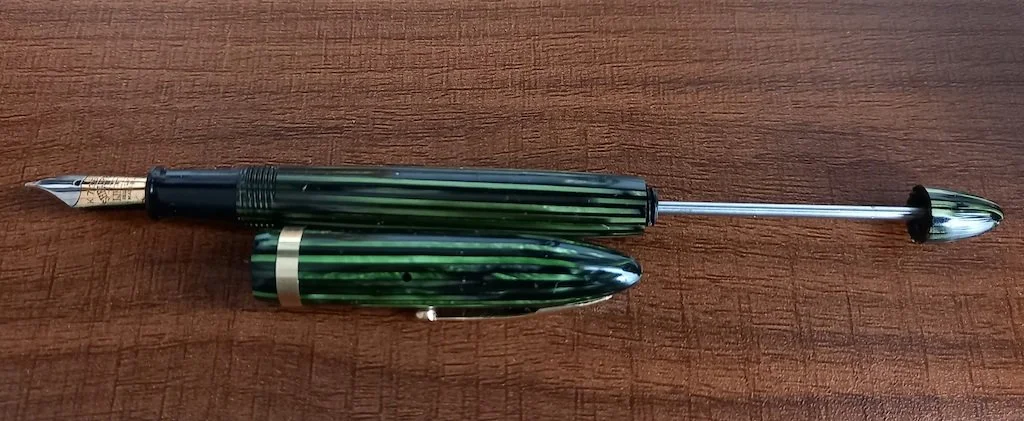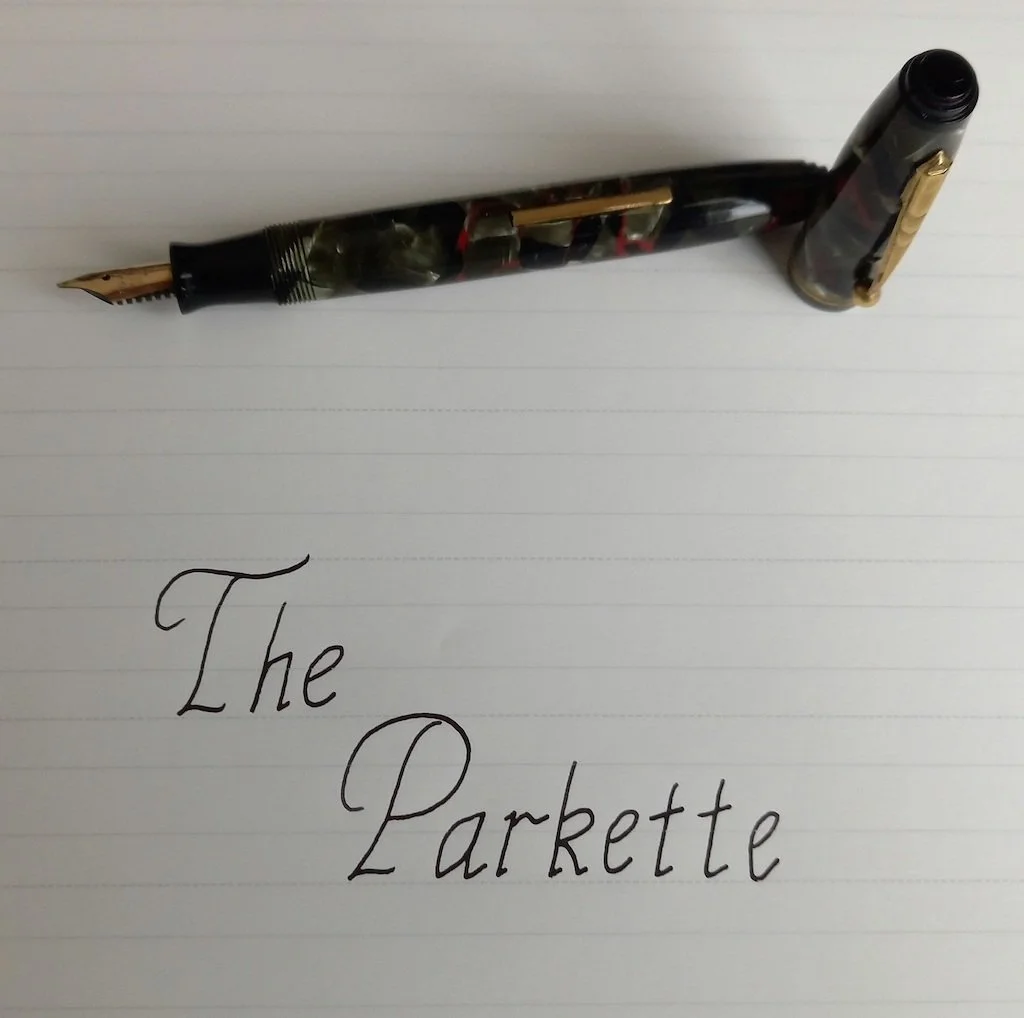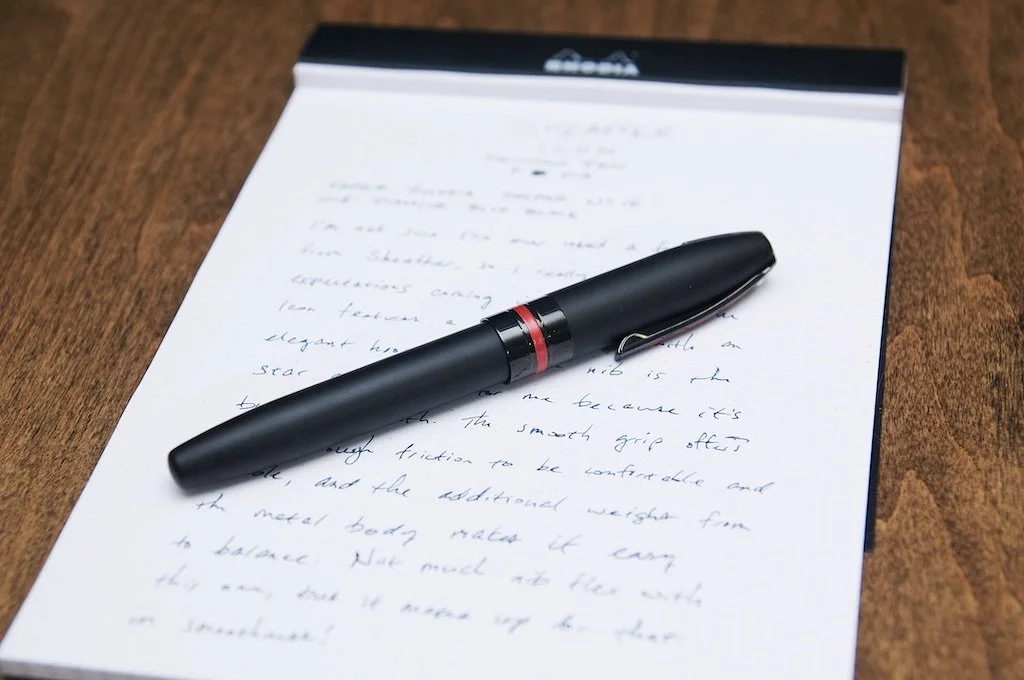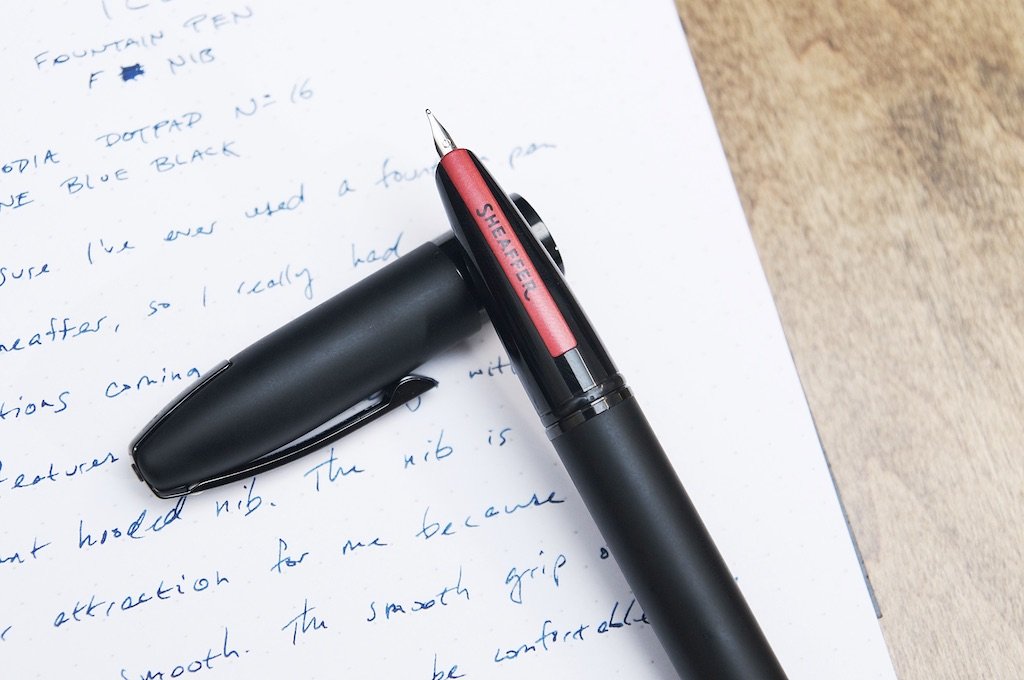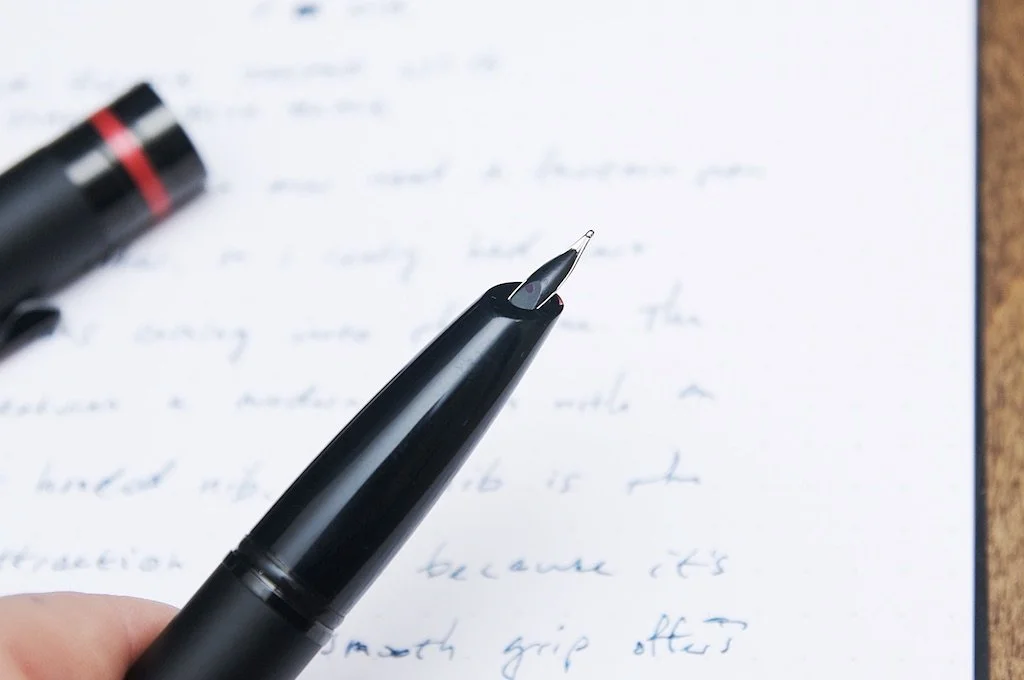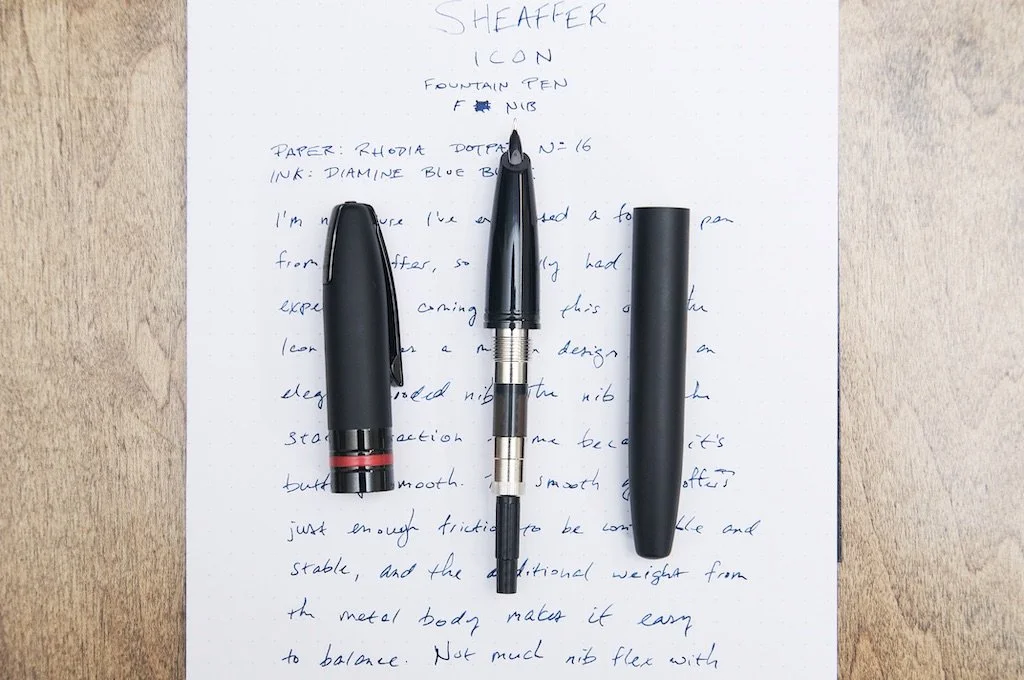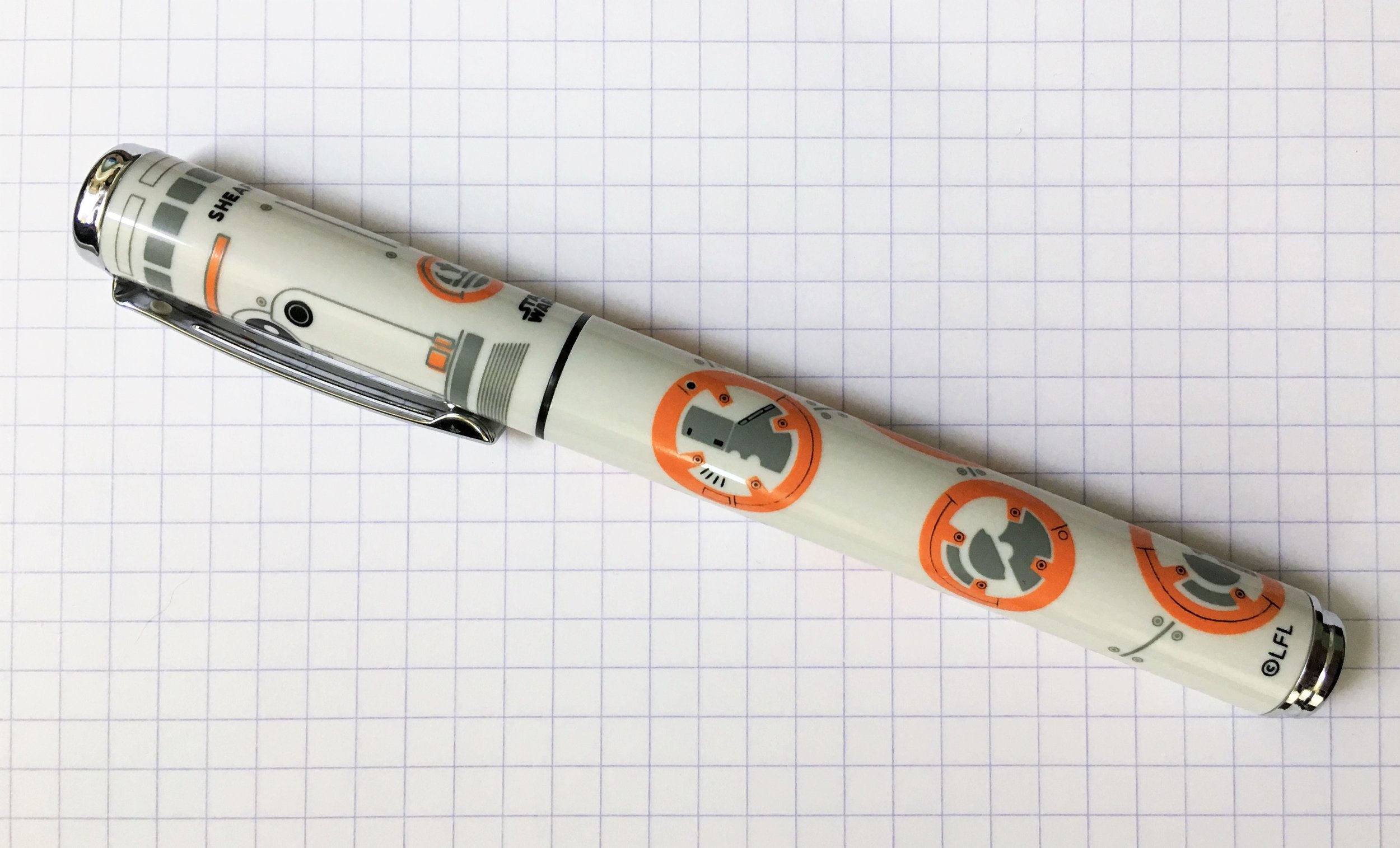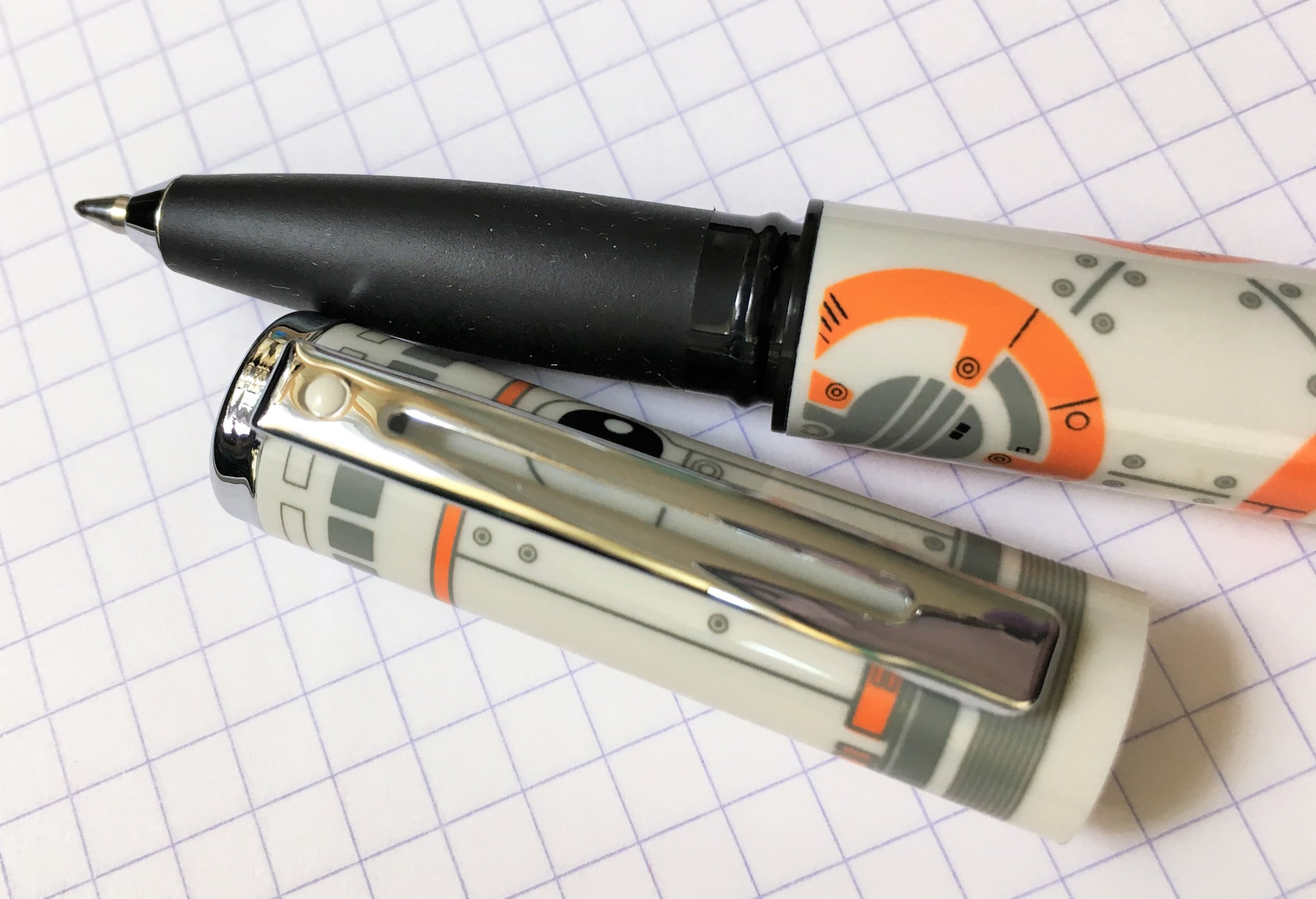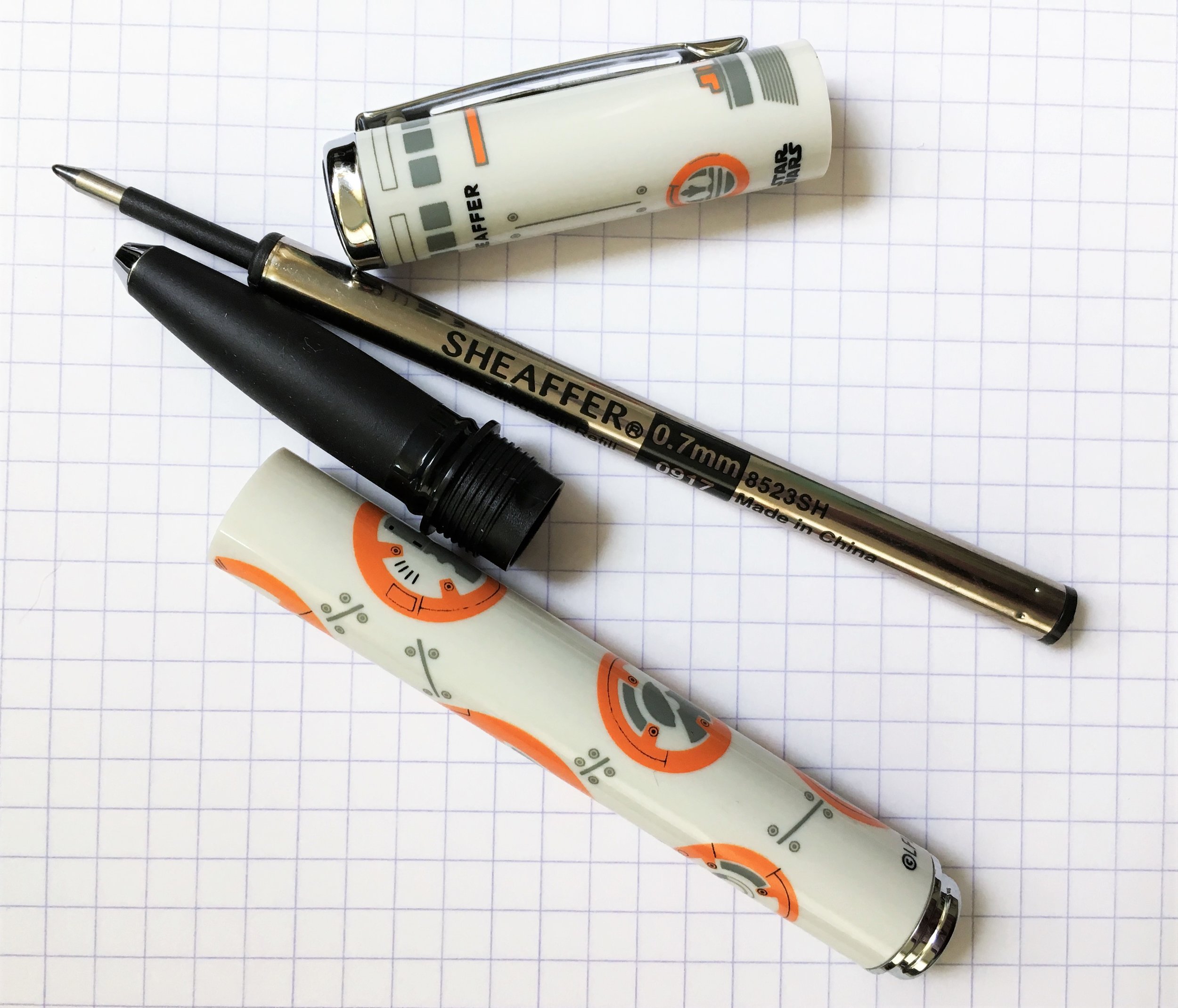(Chloé Stott is a blogger, freelance writer and product reviewer with a fountain pen obsession. She is the founder of KraftyCats, where she blogs about pen restorations, guitars, cats and coffee, and publishes reviews for companies all over the world.)
When Brad kindly allowed me to write a guest post for The Pen Addict, he gave me a prompt.
'How do you decide to use a vintage pen when you have so many modern pens on hand?'
It looks like a simple question, doesn't it? I suppose it is, but there are so many different answers to it and I found it impossible to give just one reason. It took me a day to narrow the possible responses down so I could write a post. But, after all that thought, I think I can give a few points that will explain why I adore vintage pens so much and regularly use them in everyday life.
Design
Back in the early 20th century, fountain pens were so carefully designed. Take a look at the picture below - the beautiful striped design of the green Sheaffer and the delicate marbling of the Parkette. Both have shiny brass or gold-plated bands. Yes, back then, manufacturers used gold quite liberally, including it in nibs, bands, and clips. Nowadays we have cheaper substitutes that are often used instead, but the joy of a writing with a good, flexible 14k gold nib is unlike anything you'll experience when using modern pens with steel nibs.
Now observe this Parker Duofold. See that ring top? I can't find any 21st century pens with that feature. The ring-top was meant for ladies, so they could wear the pen on a chain as I do. Generally speaking, men had the pens with clips, and those made for ladies had either a ring, or were just left clipless, to be carried inside a purse.
There are several pens from this century in my collection that I would love to wear on a silver chain, but none of them have rings, so sadly I cannot...
Nibs
Modern pens typically have nibs that are made out of materials resistant to wear. That is all very well and good, and makes sense. Of course, you want a resilient nib that won't be affected by anybody else's writing style if you lend the pen to a friend, coworker, etc. But I love the fact that I can use a writing instrument from the thirties or forties, and feel the slight scratch of the nib where it was worn down by its previous owner.
I'll never know who originally owned it, but I feel that the tiny scratch I can detect when writing gives me a tiny connection to the person who loved and used this pen before me. It's a small thing, but it gives me joy. I get to daydream about the letters, messages and notes that this pen wrote long before I existed, and I like to imagine how happy the person who bought it would be to see that their pen is still cherished in 2022.
Filling Mechanisms
Today, most pens (like the one on the left) use a converter or cartridge. The Sheaffer on the right sucks ink up with an extendable metal straw. Am I the only one who finds this funny and entertaining?
A lot of vintage mechanisms were rather unnecessarily complicated but it gives them charm (unless you're trying to restore one). Converters, while often easier to use, are boring in comparison. Do you remember the green Sheaffer? It has a hidden plunger mechanism. Genius!
Longevity
Look around your house. How many items can you see that will still function in a century?
Probably not many. That's the problem. We live in a throwaway society, and members of my generation are often deep in the clutches of mindless consumerism. 'Ooh, that looks pretty, buy it. Yeah, it'll probably fall apart in a year, but who cares? I'll buy another'. This applies to clothes, electronics, you name it. Things are built to fall apart nowadays. Companies make more money if their products break.
That attitude would have horrified many of our ancestors, because they made items to last. They believed that if you paid for a product, it should last you a lifetime, and many companies such as Sheaffer actually did come with a such a guarantee. Sheaffer put a little white dot on their pens that they called the Mark Of Distinction - it signified that it was guaranteed to last for the lifetime of the person who first bought it.
You didn't even have to pay extra to get that feature.
I could say more about my love of all things vintage pen related, but I think I have covered the most salient features of these amazing little pieces of engineering. I'm not saying that fountain pens manufactured more recently aren't also brilliant - I own many which I wouldn't want to be without, but their predecessors hold a special place in my heart.

